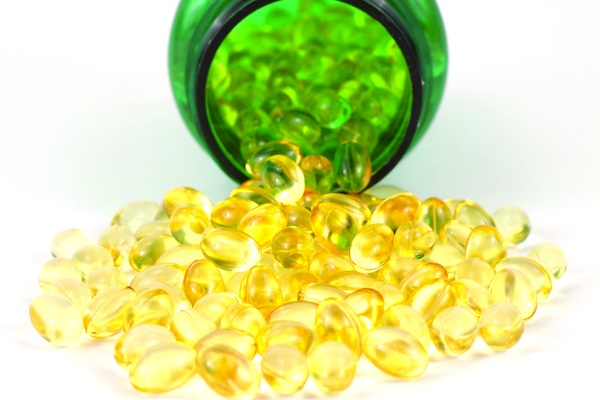Daily Multivitamin May Slightly Lower Men's Cancer Risk

Get the world’s most fascinating discoveries delivered straight to your inbox.
You are now subscribed
Your newsletter sign-up was successful
Want to add more newsletters?

Delivered Daily
Daily Newsletter
Sign up for the latest discoveries, groundbreaking research and fascinating breakthroughs that impact you and the wider world direct to your inbox.

Once a week
Life's Little Mysteries
Feed your curiosity with an exclusive mystery every week, solved with science and delivered direct to your inbox before it's seen anywhere else.

Once a week
How It Works
Sign up to our free science & technology newsletter for your weekly fix of fascinating articles, quick quizzes, amazing images, and more

Delivered daily
Space.com Newsletter
Breaking space news, the latest updates on rocket launches, skywatching events and more!

Once a month
Watch This Space
Sign up to our monthly entertainment newsletter to keep up with all our coverage of the latest sci-fi and space movies, tv shows, games and books.

Once a week
Night Sky This Week
Discover this week's must-see night sky events, moon phases, and stunning astrophotos. Sign up for our skywatching newsletter and explore the universe with us!
Join the club
Get full access to premium articles, exclusive features and a growing list of member rewards.
A daily multivitamin may slightly reduce men's cancer risk, a new study suggests.
In the study, men ages 50 and over who took a daily multivitamin were 8 percent less likely to develop cancer over an 11-year period compared with men who took a placebo.
However, when the study looked at men's risk of specific cancers, such as prostate, lung and colon cancer, the multivitamin did not have an effect. In addition, men who took a multivitamin were just as likely to die from cancer as those who took a placebo.
While there is strong evidence that eating a diet high in fruits and vegetables lowers cancer risk, studies on whether vitamins can do the same have had mixed results.
In fact, several studies in recent years have suggested vitamins may bring health risks. For instance, a study of more than 35,000 U.S. men published last year found daily supplements of vitamin E increased the risk of prostate cancer by 17 percent, and a 2010 study of Swedish women found a daily multivitamin increased the risk of breast cancer by 19 percent.
The new study, with its modest results, may do little to change the state of the science.
"I don’t think this study is a game changer," said registered dietitian Katherine Tallmadge, the author of "Diet Simple" (LifeLine Press, 2011). "It might make me less nervous about an older man taking a multivitamin," Tallmadge said.
Get the world’s most fascinating discoveries delivered straight to your inbox.
People should first and foremost try to get vitamins from food, and take supplements only when they cannot meet their daily requirements through diet, experts say. Recommendations about which vitamins to take should be made on an individual basis, Tallmadge said.
The study was funded in part by the BASF Corp., a company that makes vitamins.
Dr. J. Michael Gaziano, of Brigham and Women’s Hospital and Harvard Medical School in Boston, and colleagues analyzed information from more than 14,600 male doctors who were followed for an average of 11 years. The researchers looked at whether the men developed cancer of any kind, excluding non-melanoma skin cancers, which are common cancers and relatively slow-growing.
During the study, there were 2,669 cases of cancer, and about 859 deaths from cancer.
The yearly rate of cancer was 17 cases per 1,000 men who took a multivitamin, and 18.3 cases per 1,000 men who took a placebo.
The researchers noted that about half the cancer cases seen in the study were early-stage prostate cancer — the relative commonness of this cancer may have been influenced by the increase in prostate cancer screening that began in the late 1990s.
When the researchers removed all cases of prostate cancer from their analysis, they found that taking a multivitamin lowered the risk of all other cancers by 12 percent.
Because the supplement used in the study contained many vitamins and minerals, it is difficult to work out whether any particular component or combination of components may have been responsible for the reduced risk of cancer, the researchers said.
The study is published online today (Oct. 17) in the Journal of the American Medical Association.
Pass it on: Older men who took a daily multivitamin had a slightly lower risk of cancer after 11 years compared to men who took a placebo.
Follow Rachael Rettner on Twitter @RachaelRettner, or MyHealthNewsDaily @MyHealth_MHND. We're also on Facebook & Google+.

Rachael is a Live Science contributor, and was a former channel editor and senior writer for Live Science between 2010 and 2022. She has a master's degree in journalism from New York University's Science, Health and Environmental Reporting Program. She also holds a B.S. in molecular biology and an M.S. in biology from the University of California, San Diego. Her work has appeared in Scienceline, The Washington Post and Scientific American.
 Live Science Plus
Live Science Plus










